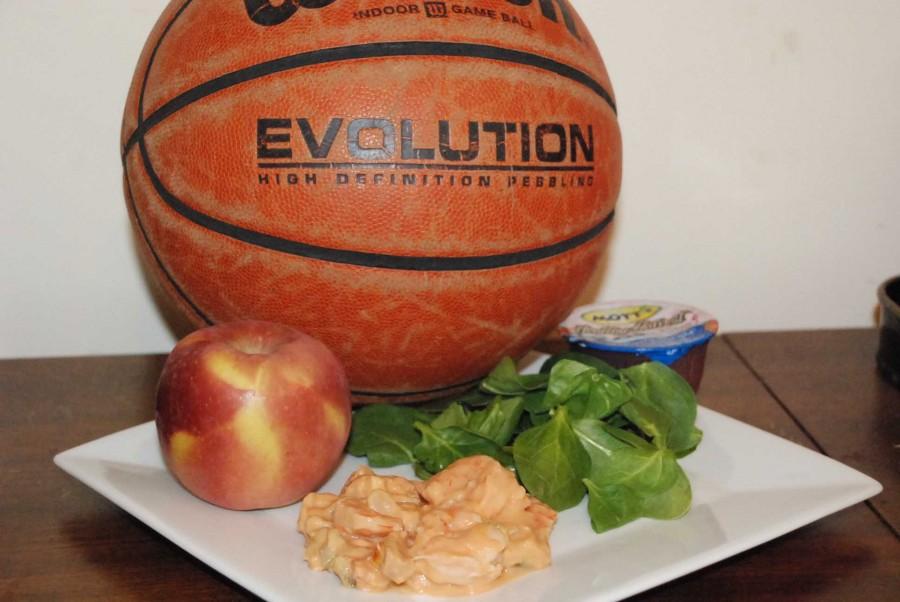Excellence (noun): an action, characteristic, feature, etc., in which a person excels. In the context of sport it is the pinnacle of any athletic career.
In order to reach that level of excellence, athletes must learn from their mistakes on and off the field and listen to their coaching staff. In addition, there is work that must be performed behind the scenes.
For example, they must visit the gym regularly and make sure that they maintain a weight that is necessary for their position and sport. Ask any athlete and they will quickly tell you that eating properly is very important to them, especially in season.
“During the season, I definitely have to consume more calories, because we lift weights and have the hot summer sun to practice in,” said defensive end Kyle Ennis, “
The conversation will quickly include reference to the best friends of their bodies, carbohydrates and proteins.
Carbohydrates are the fuel that allows the athlete-engine to run at prime efficiency. Athletes should have a daily intake of approximately 2,000 to 5, 000 calories in order to replace the calories that they burn off in practice, games, and weight sessions.
Those carbs should include daily intake of various pastas, whole-grains, and oatmeal for breakfast or late-night snacks. The carbs provide the athletic body with long-lasting energy and are ideally to be eaten before events.
“Athletes are ‘eating machines’ and they will re-fuel when they have an opportunity. That’s the most difficult part in any athlete’s diet,” Guilford Head Athletic Trainer Gary Rizza said,
“I actually find it much easier now to maintain positive eating habits than before college,” said first-year pitcher Chris Conner when asked if it was hard for him to adhere to a structured eating plan. “With healthy food offered in the Caf and in The Grill, there are always good alternatives.”
Ennis concurred with Conner.
“The cafeteria is producing good food,” Ennis said. “So there is no reason that I shouldn’t fill up on the good food, such as proteins, instead of the sweet, fattening foods.”
Proteins are the next most important aspect of healthy training. Peanut butter, lean meats, and dairy products provide the athlete with the protein needed to fuel the body as well as the healthy fats that the body requires to operate properly.
“The importance of proper food/diet/exercise should begin when an athlete is very young,” added Rizza. “And as their bodies develop, they can make the right choices which lead to a healthy life.”
An athlete that buys into that program early-on can save themselves a lot of difficulty adjusting in the future.
These proteins, coupled with zinc and iron intake, speed recovery from injuries, which is important to any injured athlete.
“The heat shreds all the fat off your body so you have to replenish that loss with a lot of good proteins to retain energy,” said Ennis.
“Educating all athletes about proper nutrition is the goal,” Rizza said. “As they learn more about exercise, nutrition, and how their body works, they can make good decisions about what to eat.”
As most commercial sports drinks include ingredients not conducive to an athlete’s diet, it’s recommended that athletes mix their own fruit drinks.
The college athlete is a new breed compared to those of past years. The research associated with athletes today is plentiful and very much on the money. The maintenance of the human body is the key to allowing it to perform at peak level for the duration of an athlete’s life.
The cross-training of exercising and eating properly allow the student athlete to go “human-body-green” by ensuring that each meal has at least one green food on the plate such as spinach, broccoli, or a healthy dessert or snack of their favorite fruit. It’s a lifestyle that allows for superior play on the field/court and also enable athletes’ bodies to be the temples of excellence that we witness at sporting events.

